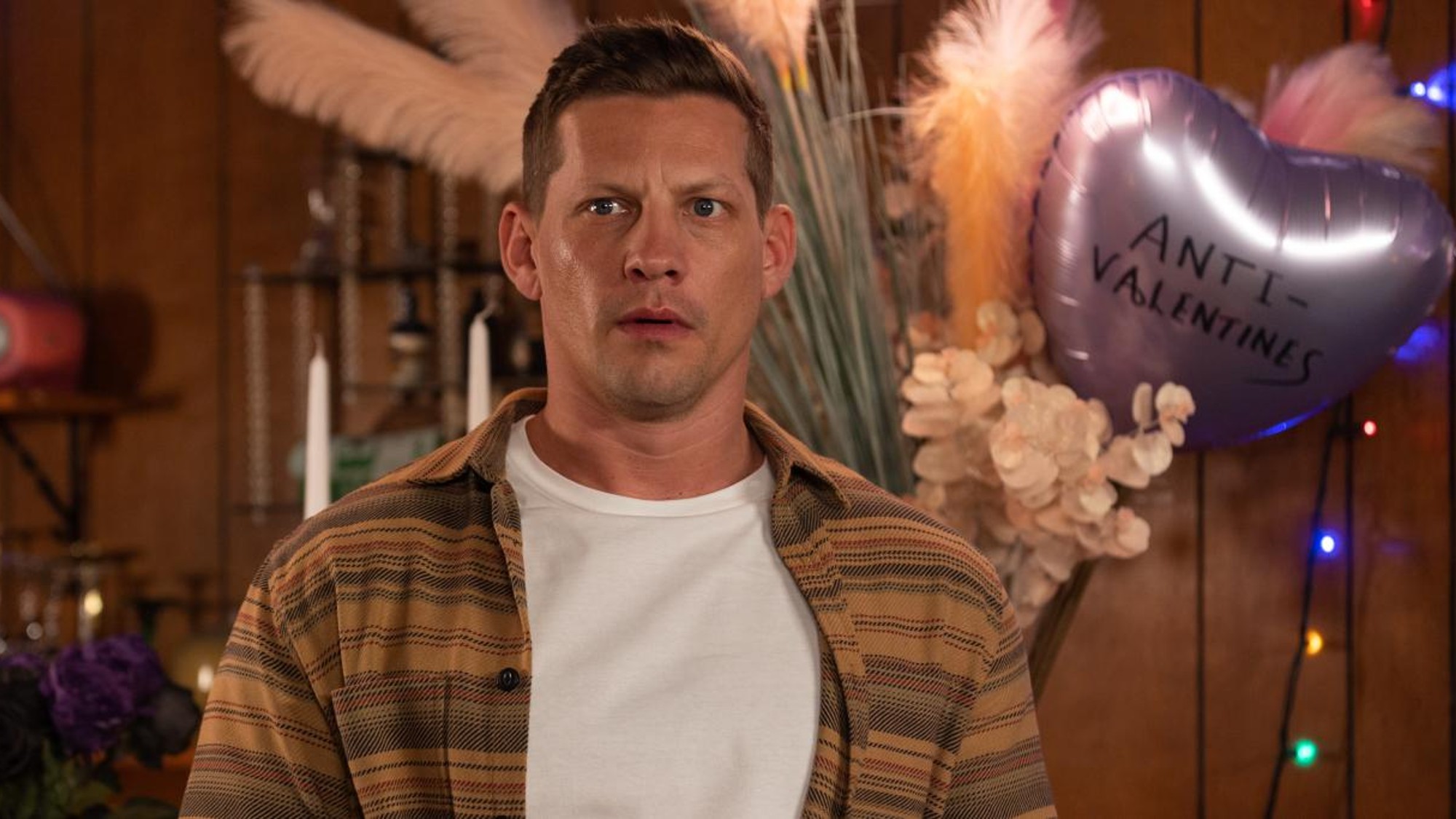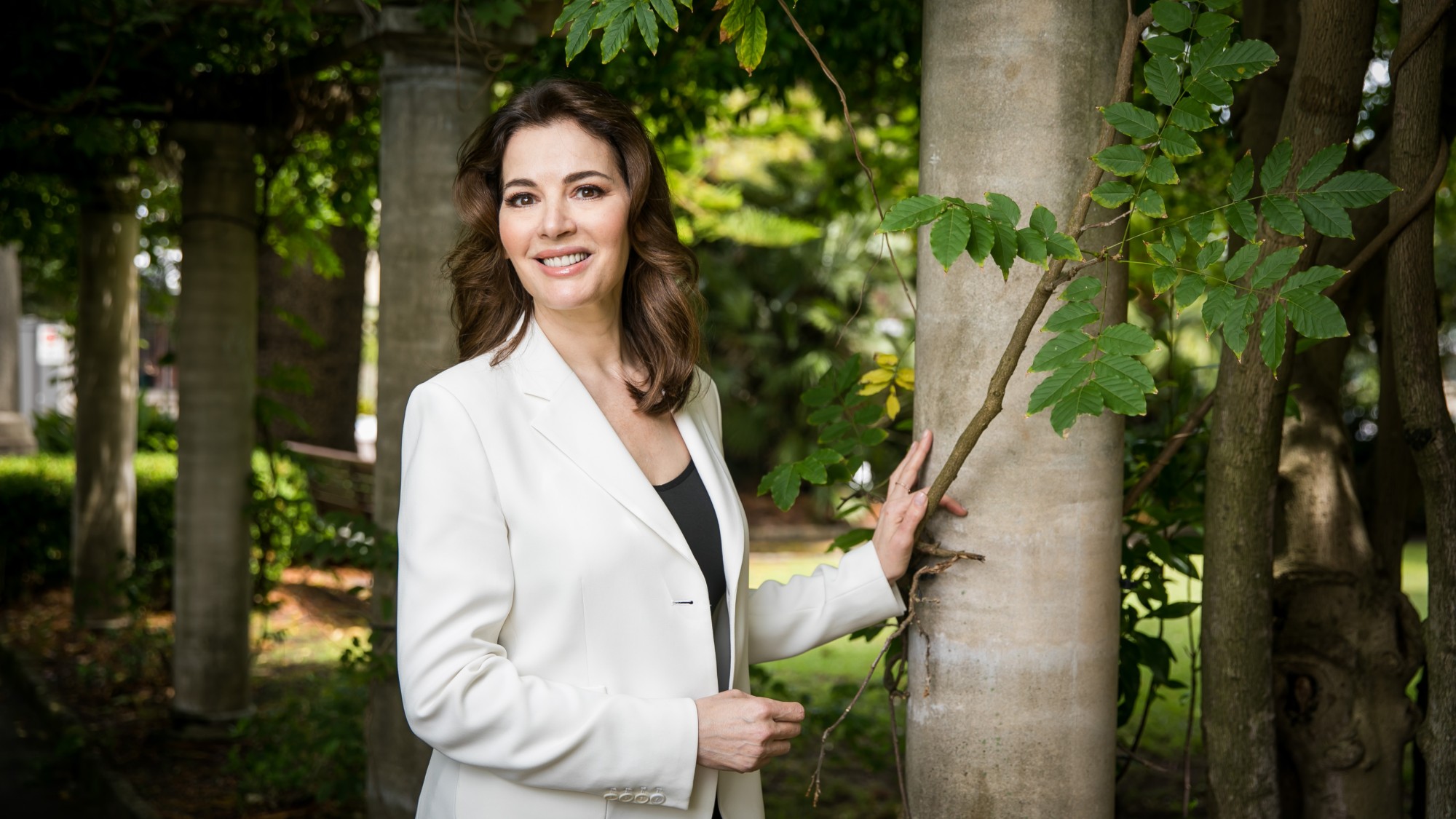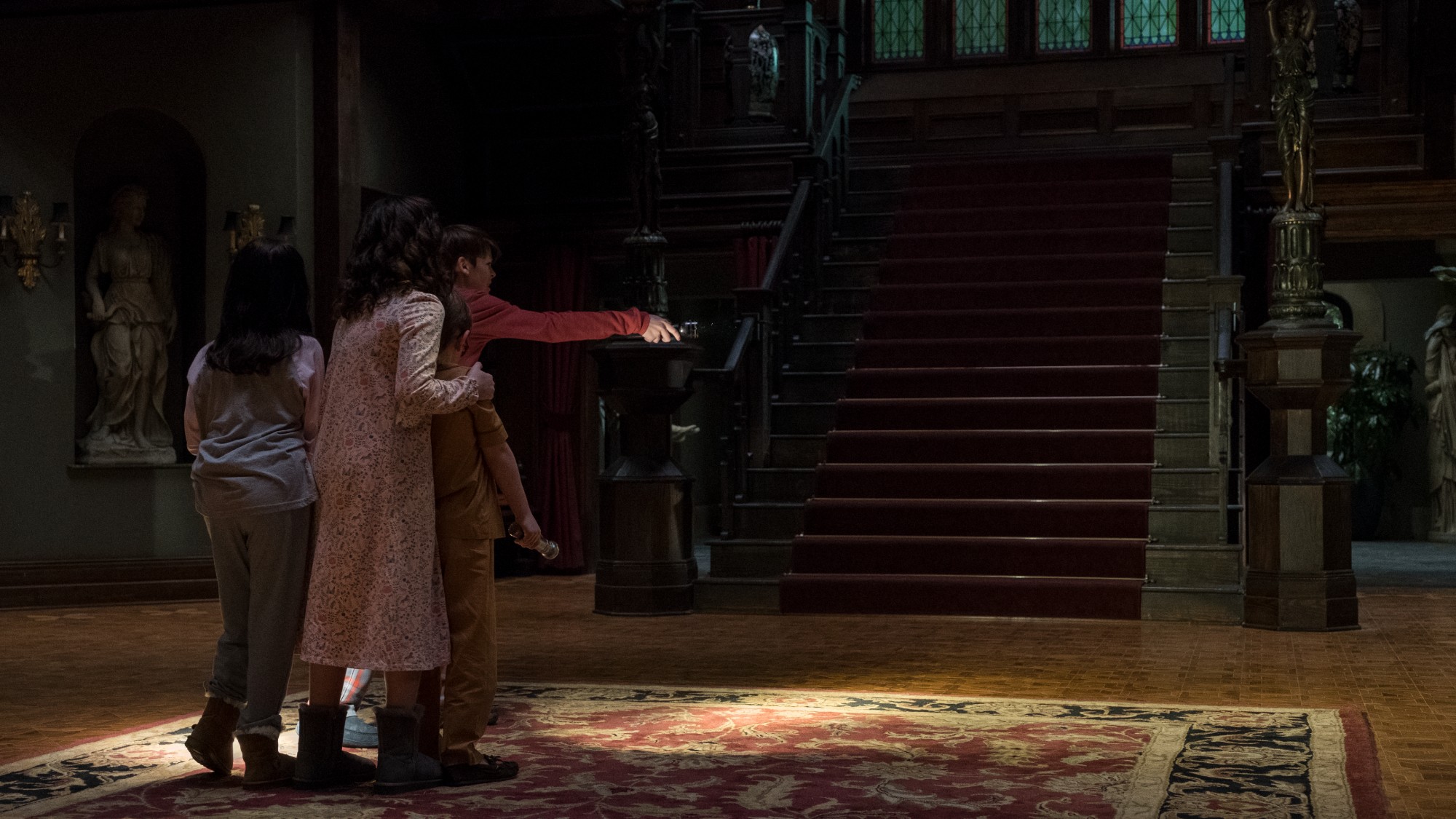The Hollyoaks time jump and the future of British soaps
Loss of nearly a third of cast and crew on Channel 4 show shows how beleaguered TV industry needs to 'reinvent' itself

A free daily email with the biggest news stories of the day – and the best features from TheWeek.com
You are now subscribed
Your newsletter sign-up was successful
"How do you get rid of 20 people in the same small, tight-knit, already troubled village?"
That was the conundrum for the writers on long-running soap "Hollyoaks", said the BBC. So on Monday, in one of British television's "more unusual soap plot twists", the storyline will jump forward by a year, to reduce the number of episodes and remove 20 characters – about a third of the cast.
It will also be the first week in the soap's 25-year history to air only three episodes, down from five, as part of Channel 4's recent budget cuts amid a downturn in advertising revenue and a "funding squeeze" throughout the whole industry. Following the BBC's move to cancel "Doctors" and "Holby City", with Channel 5 axing its funding for "Neighbours", this is the latest "cutback to TV drama". But does it mark "the beginning of the end for British soaps?"
The Week
Escape your echo chamber. Get the facts behind the news, plus analysis from multiple perspectives.

Sign up for The Week's Free Newsletters
From our morning news briefing to a weekly Good News Newsletter, get the best of The Week delivered directly to your inbox.
From our morning news briefing to a weekly Good News Newsletter, get the best of The Week delivered directly to your inbox.
Trimming the fat for the streaming era
The "Hollyoaks" viewing figures are down by a third in two years, with soap ratings falling steadily "across the board", said the BBC. In fact, it doesn't even air on TV – it's available on Channel 4's streaming platform, YouTube and Channel 4's sister channel E4.
Bosses say that viewers are only watching three episodes a week anyway. "Our audience is younger and they're consuming the show differently," said Channel 4's drama commissioning executive Ben Wadey. "We have to move forward, we have to reinvent."
The cut from five episodes might also prove a boon for the writers, said Jennifer Metcalfe, who has played Mercedes McQueen in the show for nearly 20 years. "It gives us more time to tell stories with more patience," she said, as opposed to "churning out" five episodes a week.
It's a chance to "trim the fat", said Tyler Conti, who plays Abe. And it's "reflective of how people watch TV these days", according to Nadine Mulkerrin, who plays his on-screen partner Cleo. "Who watches TV live anymore? We're all streaming it."
A free daily email with the biggest news stories of the day – and the best features from TheWeek.com
"Time for viewers is sacred," said TV critic Scott Bryan. Soaps need to be "nimble" and adapt to the changing world.
"EastEnders" is a good example of a show that has "come back fighting" in the digital era with viral moments, the return of "notable characters" and "a near yearlong whodunnit". But to watch "Neighbours" these days, you "literally have to go out of your way" to find episodes on Amazon Freevee. Would younger viewers bother? "Probably not."
The pipeline to prestige
But trimming the fat on screen means cutting jobs behind the scenes. About 130 jobs have been lost on the Liverpool set of "Hollyoaks".
The announcement was "absolutely devastating news for everyone concerned", said broadcasting union Bectu, both for regions where soaps are filmed – cities like Birmingham (where "Doctors" was shot) with smaller TV industries than London – and for the UK's TV industry as a whole.
When the BBC announced last October that it would be axing "Doctors" after 24 years – just 18 months after cancelling "Holby City" – one screenwriter described the decision as "disastrous". The BBC blamed "super inflation in drama production", but Philip Ralph – who had worked on the show for nearly 20 years – voiced his anger in a viral thread on X. When the decision was made he said to his partner: "Well, it looks like we might have to sell the house," The Guardian reported.
"The TV industry is contracting. Production across the board is way down," he said. Bectu surveyed its members and found that 68% of them were out of work. "'Doctors' was a much-needed 'finger in the dam' of this terrible situation."
"Doctors", like many soaps, also functioned as a "training ground" for some of the UK's best actors, such as Phoebe Waller-Bridge, Eddie Redmayne, Emilia Clarke and Nicholas Hoult, said Bryan. Its cancellation "sent alarm bells through the TV industry".
Soaps also provide an "entry point" into the industry for mainly working-class actors, said The Sun's soaps editor Carl Greenwood. With cuts to "Hollyoaks", the "ever-shrinking pool of opportunities" for working-class people is "dying".
And it's not just actors. Numerous writers, producers, costumers and other staff "honed their craft" on soaps before going on to "big budget high-profile shows". Without soaps, there would be no prestige TV. The industry is "sleep-walking into a crisis of its own making".
After all, British soaps like "Coronation Street" and "Hollyoaks" are "part of the national identity" – especially Corrie, still the most watched show in Britain. For more than 60 years, Corrie has "entertained, informed and amused millions". If soaps are allowed to "wither and die", we will "all be poorer for it"
Harriet Marsden is a senior staff writer and podcast panellist for The Week, covering world news and writing the weekly Global Digest newsletter. Before joining the site in 2023, she was a freelance journalist for seven years, working for The Guardian, The Times and The Independent among others, and regularly appearing on radio shows. In 2021, she was awarded the “journalist-at-large” fellowship by the Local Trust charity, and spent a year travelling independently to some of England’s most deprived areas to write about community activism. She has a master’s in international journalism from City University, and has also worked in Bolivia, Colombia and Spain.
-
 How the FCC’s ‘equal time’ rule works
How the FCC’s ‘equal time’ rule worksIn the Spotlight The law is at the heart of the Colbert-CBS conflict
-
 What is the endgame in the DHS shutdown?
What is the endgame in the DHS shutdown?Today’s Big Question Democrats want to rein in ICE’s immigration crackdown
-
 ‘Poor time management isn’t just an inconvenience’
‘Poor time management isn’t just an inconvenience’Instant Opinion Opinion, comment and editorials of the day
-
 The 8 best TV shows of the 1960s
The 8 best TV shows of the 1960sThe Week Recommends The standout shows of this decade take viewers from outer space to the Wild West
-
 The 8 best superhero movies of all time
The 8 best superhero movies of all timethe week recommends A genre that now dominates studio filmmaking once struggled to get anyone to take it seriously
-
 February TV brings the debut of an adult animated series, the latest batch of ‘Bridgerton’ and the return of an aughts sitcom
February TV brings the debut of an adult animated series, the latest batch of ‘Bridgerton’ and the return of an aughts sitcomthe week recommends An animated lawyers show, a post-apocalyptic family reunion and a revival of a hospital comedy classic
-
 Josh D’Amaro: the theme park guru taking over Disney
Josh D’Amaro: the theme park guru taking over DisneyIn the Spotlight D’Amaro has worked for the Mouse House for 27 years
-
 The best fan fiction that went mainstream
The best fan fiction that went mainstreamThe Week Recommends Fan fiction websites are a treasure trove of future darlings of publishing
-
 The 8 best hospital dramas of all time
The 8 best hospital dramas of all timethe week recommends From wartime period pieces to of-the-moment procedurals, audiences never tire of watching doctors and nurses do their lifesaving thing
-
 Will Nigella be the secret ingredient to revive GBBO?
Will Nigella be the secret ingredient to revive GBBO?Talking Point Lawson will bring yet more ‘eye-twinkling double entendres’ to a show that some say has ‘lost its way’
-
 The 8 best horror series of all time
The 8 best horror series of all timethe week recommends Lost voyages, haunted houses and the best scares in television history